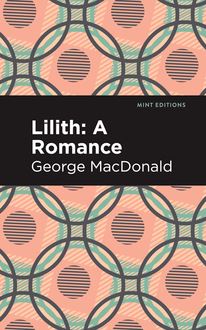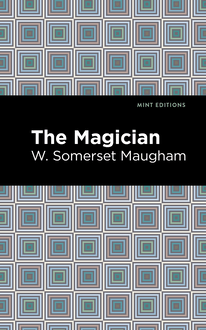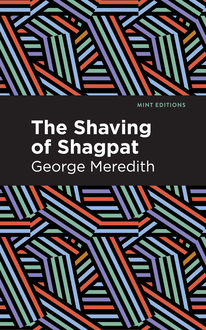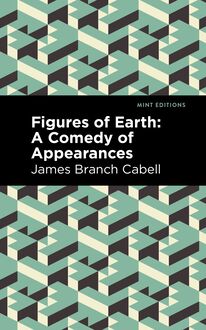-
 Univers
Univers
-
 Ebooks
Ebooks
-
 Livres audio
Livres audio
-
 Presse
Presse
-
 Podcasts
Podcasts
-
 BD
BD
-
 Documents
Documents
-
- Cours
- Révisions
- Ressources pédagogiques
- Sciences de l’éducation
- Manuels scolaires
- Langues
- Travaux de classe
- Annales de BEP
- Etudes supérieures
- Maternelle et primaire
- Fiches de lecture
- Orientation scolaire
- Méthodologie
- Corrigés de devoir
- Annales d’examens et concours
- Annales du bac
- Annales du brevet
- Rapports de stage
La lecture à portée de main
Vous pourrez modifier la taille du texte de cet ouvrage
Découvre YouScribe en t'inscrivant gratuitement
Je m'inscrisDécouvre YouScribe en t'inscrivant gratuitement
Je m'inscrisEn savoir plus
Vous pourrez modifier la taille du texte de cet ouvrage
En savoir plus

Description
When Brother John, a man known for wandering around Africa for years, tells Allan Quatermain about a rare and gorgeous orchid hidden in the wild flora of Africa, Quatermain is determined to find one. When he does, he travels to England and meets Stephen Somers, who collects special flowers. Somers was eager to buy the orchid, but after a mix up at an auction, he finds himself in trouble with his family. Nevertheless, Somers still desperately wants one of the African orchids, and offers to accompany Quatermain and finance the journey to recover another flower. Never one to turn down an expedition, Quatermain agrees, and together, they begin their expedition in Africa, determined to find the orchid that Brother John had described as the largest flower in the region. However, as their adventure unfolds, the men face unanticipated struggles. While they continue their search, the men must work together and think quick to survive the unexpected, trekking through land unknown, fighting battles, leading rescue missions, and navigating daunting encounters with cannibals, slave traders, and a giant gorilla.
Filled with thrilling action, narrow escapes, and wonderful descriptions, Allan and the Holy Flower by H. Rider Haggard is a page-turning 19th century adventure novel. Set in colonial Africa, Haggard includes a setting that is not often depicted in English literature. First published in 1915, Allan and the Holy Flower remains to be a fresh and thrilling action- adventure, delighting audiences with its quick pace and nail-biting conflicts. Written in imaginative, yet accessible prose, Allan and the Holy Flower is a classic adventure novel perfect for all ages.
This edition of Allan and the Holy Flower by H. Rider Haggard features a striking new cover design and is printed in a font that is both modern and readable. With these accommodations, Allan and the Holy Flower caters to a contemporary audience while preserving the original innovation and adventure of H. Rider Haggard’s work.
Sujets
Informations
| Publié par | Mint Editions |
| Date de parution | 09 mars 2021 |
| Nombre de lectures | 0 |
| EAN13 | 9781513278032 |
| Langue | English |
| Poids de l'ouvrage | 2 Mo |
Informations légales : prix de location à la page 0,0500€. Cette information est donnée uniquement à titre indicatif conformément à la législation en vigueur.
Extrait
Allan and the Holy Flower
H. Rider Haggard
Allan and the Holy Flower was first published in 1915.
This edition published by Mint Editions 2021.
ISBN 9781513277622 | E-ISBN 9781513278032
Published by Mint Editions ®
minteditionbooks.com
Publishing Director: Jennifer Newens
Design & Production: Rachel Lopez Metzger
Project Manager: Micaela Clark
Typesetting: Westchester Publishing Services
C ONTENTS I. B ROTHER J OHN II. T HE A UCTION R OOM III. S IR A LEXANDER AND S TEPHEN IV. M AVOVO AND H ANS V. H ASSAN VI. T HE S LAVE R OAD VII. T HE R USH OF THE S LAVES VIII. T HE M AGIC M IRROR IX. B AUSI THE K ING X. T HE S ENTENCE XI. T HE C OMING OF D OGEETAH XII. B ROTHER J OHN ’ S S TORY XIII. R ICA T OWN XIV. T HE K ALUBI ’ S O ATH XV. T HE M OTOMBO XVI. T HE G ODS XVII. T HE H OME OF THE H OLY F LOWER XVIII. F ATE S TABS XIX. T HE T RUE H OLY F LOWER XX. T HE B ATTLE OF THE G ATE E PILOGUE
I
B ROTHER J OHN
I do not suppose that anyone who knows the name of Allan Quatermain would be likely to associate it with flowers, and especially with orchids. Yet as it happens it was once my lot to take part in an orchid hunt of so remarkable a character that I think its details should not be lost. At least I will set them down, and if in the after days anyone cares to publish them, well—he is at liberty to do so.
It was in the year—oh! never mind the year, it was a long while ago when I was much younger, that I went on a hunting expedition to the north of the Limpopo River which borders the Transvaal. My companion was a gentleman of the name of Scroope, Charles Scroope. He had come out to Durban from England in search of sport. At least, that was one of his reasons. The other was a lady whom I will call Miss Margaret Manners, though that was not her name.
It seems that these two were engaged to be married, and really attached to each other. Unfortunately, however, they quarrelled violently about another gentlemen with whom Miss Manners danced four consecutive dances, including two that were promised to her fianc é at a Hunt ball in Essex, where they all lived. Explanations, or rather argument, followed. Mr. Scroope said that he would not tolerate such conduct. Miss Manners replied that she would not be dictated to; she was her own mistress and meant to remain so. Mr. Scroope exclaimed that she might so far as he was concerned. She answered that she never wished to see his face again. He declared with emphasis that she never should and that he was going to Africa to shoot elephants.
What is more, he went, starting from his Essex home the next day without leaving any address. As it transpired afterwards, long afterwards, had he waited till the post came in he would have received a letter that might have changed his plans. But they were high-spirited young people, both of them, and played the fool after the fashion of those in love.
Well, Charles Scroope turned up in Durban, which was but a poor place then, and there we met in the bar of the Royal Hotel.
“If you want to kill big game,” I heard some one say, who it was I really forget, “there’s the man to show you how to do it—Hunter Quatermain; the best shot in Africa and one of the finest fellows, too.”
I sat still, smoking my pipe and pretending to hear nothing. It is awkward to listen to oneself being praised, and I was always a shy man.
Then after a whispered colloquy Mr. Scroope was brought forward and introduced to me. I bowed as nicely as I could and ran my eye over him. He was a tall young man with dark eyes and a rather romantic aspect (that was due to his love affair), but I came to the conclusion that I liked the cut of his jib. When he spoke, that conclusion was affirmed. I always think there is a great deal in a voice; personally, I judge by it almost as much as by the face. This voice was particularly pleasant and sympathetic, though there was nothing very original or striking in the words by which it was, so to speak, introduced to me. These were:
“How do you do, sir. Will you have a split?”
I answered that I never drank spirits in the daytime, or at least not often, but that I should be pleased to take a small bottle of beer.
When the beer was consumed we walked up together to my little house on which is now called the Berea, the same in which, amongst others, I received my friends, Curtis and Good, in after days, and there we dined. Indeed, Charlie Scroope never left that house until we started on our shooting expedition.
Now I must cut all this story short, since it is only incidentally that it has to do with the tale I am going to tell. Mr. Scroope was a rich man and as he offered to pay all the expenses of the expedition while I was to take all the profit in the shape of ivory or anything else that might accrue, of course I did not decline his proposal.
Everything went well with us on that trip until its unfortunate end. We only killed two elephants, but of other game we found plenty. It was when we were near Delagoa Bay on our return that the accident happened.
We were out one evening trying to shoot something for our dinner, when between the trees I caught sight of a small buck. It vanished round a little promontory of rock which projected from the side of the kloof, walking quietly, not running in alarm. We followed after it. I was the first, and had just wriggled round these rocks and perceived the buck standing about ten paces away (it was a bush-bok), when I heard a rustle among the bushes on the top of the rock not a dozen feet above my head, and Charlie Scroope’s voice calling:
“Look out, Quatermain! He’s coming.”
“Who’s coming?” I answered in an irritated tone, for the noise had made the buck run away.
Then it occurred to me, all in an instant of course, that a man would not begin to shout like that for nothing; at any rate when his supper was concerned. So I glanced up above and behind me. To this moment I can remember exactly what I saw. There was the granite water-worn boulder, or rather several boulders, with ferns growing in their cracks of the maiden-hair tribe, most of them, but some had a silver sheen on the under side of their leaves. On one of these leaves, bending it down, sat a large beetle with red wings and a black body engaged in rubbing its antenn æ with its front paws. And above, just appearing over the top of the rock, was the head of an extremely fine leopard. As I write to seem to perceive its square jowl outlined against the arc of the quiet evening sky with the saliva dropping from its lips.
This was the last thing which I did perceive for a little while, since at that moment the leopard—we call them tigers in South Africa—dropped upon my back and knocked me flat as a pancake. I presume that it also had been stalking the buck and was angry at my appearance on the scene. Down I went, luckily for me, into a patch of mossy soil.
“All up!” I said to myself, for I felt the brute’s weight upon my back pressing me down among the moss, and what was worse, its hot breath upon my neck as it dropped its jaws to bite me in the head. Then I heard the report of Scroope’s rifle, followed by furious snarling from the leopard, which evidently had been hit. Also it seemed to think that I had caused its injuries, for it seized me by the shoulder. I felt its teeth slip along my skin, but happily they only fastened in the shooting coat of tough corduroy that I was wearing. It began to shake me, then let go to get a better grip. Now, remembering that Scroope only carried a light, single-barrelled rifle, and therefore could not fire again, I knew, or thought I knew, that my time had come. I was not exactly afraid, but the sense of some great, impending chance became very vivid. I remembered—not my whole life, but one or two odd little things connected with my infancy. For instance, I seemed to see myself seated on my mother’s knee, playing with a little jointed gold-fish which she wore upon her watch-chain.
After this I muttered a word or two of supplication, and, I think, lost consciousness. If so, it can only have been for a few seconds. Then my mind returned to me and I saw a strange sight. The leopard and Scroope were fighting each other. The leopard, standing on one hind leg, for the other was broken, seemed to be boxing Scroope, whilst Scroope was driving his big hunting knife into the brute’s carcase. They went down, Scroope undermost, the leopard tearing at him. I gave a wriggle and came out of that mossy bed—I recall the sucking sound my body made as it left the ooze.
Close by was my rifle, uninjured and at full cock as it had fallen from my hand. I seized it, and in another second had shot the leopard through the head just as it was about to seize Scroope’s throat.
It fell stone dead on the top of him. One quiver, one contraction of the claws (in poor Scroope’s leg) and all was over. There it lay as though it were asleep, and underneath was Scroope.
The difficulty was to get it off him, for the beast was very heavy, but I managed this at last with the help of a thorn bough I found which some elephant had torn from a tree. This I used as a lever. There beneath lay Scroope, literally covered with blood, though whether his own or the leopard’s I could not tell. At first I thought that he was dead, but after I had poured some water over him from the little stream that trickled down the rock, he sat up and asked inconsequently:
“What am I now?”
“A hero,” I answered. (I have always been proud of that repartee.)
Then, discouraging further conversation, I set to work to get him back to the camp, which fortunately was close at hand.
When we had proceeded a couple of hundred yards, he still making inconsequent remarks, his right arm round my neck and my left arm round his middle, suddenly he collapsed in a dead faint, and as his weight was more than I could carry, I had to leave him and fetch help.
In the end I got him to the tents by aid of the Kaffirs and a blanket, and there made
-
 Univers
Univers
-
 Ebooks
Ebooks
-
 Livres audio
Livres audio
-
 Presse
Presse
-
 Podcasts
Podcasts
-
 BD
BD
-
 Documents
Documents
-
Jeunesse
-
Littérature
-
Ressources professionnelles
-
Santé et bien-être
-
Savoirs
-
Education
-
Loisirs et hobbies
-
Art, musique et cinéma
-
Actualité et débat de société
-
Jeunesse
-
Littérature
-
Ressources professionnelles
-
Santé et bien-être
-
Savoirs
-
Education
-
Loisirs et hobbies
-
Art, musique et cinéma
-
Actualité et débat de société
-
Actualités
-
Lifestyle
-
Presse jeunesse
-
Presse professionnelle
-
Pratique
-
Presse sportive
-
Presse internationale
-
Culture & Médias
-
Action et Aventures
-
Science-fiction et Fantasy
-
Société
-
Jeunesse
-
Littérature
-
Ressources professionnelles
-
Santé et bien-être
-
Savoirs
-
Education
-
Loisirs et hobbies
-
Art, musique et cinéma
-
Actualité et débat de société
- Cours
- Révisions
- Ressources pédagogiques
- Sciences de l’éducation
- Manuels scolaires
- Langues
- Travaux de classe
- Annales de BEP
- Etudes supérieures
- Maternelle et primaire
- Fiches de lecture
- Orientation scolaire
- Méthodologie
- Corrigés de devoir
- Annales d’examens et concours
- Annales du bac
- Annales du brevet
- Rapports de stage




















